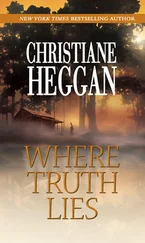He shook his head slowly. “We can try CAL–ID. But Sacramento won’t give us priority because it isn’t a homicide. And it’s too small to let us do any elimination work with class characteristics. We don’t know if we’re looking for loop, arch, whorl — just the basic Galton classifiers. Maybe they’ll give us a run. Maybe we’ll get lucky. Don’t count on either. But if we get a suspect, we can match him to these ridge endings.”
I looked at the small translucent triangle in Joe Reilly’s tweezer tips.
“He cut it off the main shed, didn’t he? He put it in the mesh. Stuck it in there like a little postcard.”
“He touched it. Somebody touched it. That’s all we can say.”
“Can you eliminate the staff here, and Courtney, and the people who found her, and the cop who responded, and anybody else who handled that netting for us?”
“We’ll have to, or CAL–ID won’t even talk to me.”
“Can you rush it?”
“Just as soon as you rush out of my lab.”
Johnny, Louis and Frances were already at work when I walked into the Sharpe residence at 7:15 A.M. The warrant gave us wide latitude for search, even though the crimes had been committed at a rented house in another part of town. Rick Zant, from the DA’s office, was there, building his case against Chet, Caryn, Marlon and, possibly, Linda. They were all working in separate areas, with Zant buzzing from room to room, hovering over my people like a fly.
We scored.
In the master bedroom, Louis found a handwritten ledger that included Marlon, Danny, Arthur Means and ten other names — undoubtedly fictitious — who appeared to be paying customers. The amounts ranged from $750 to $2,000, though Chet had tried to disguise his bookkeeping by calling them “acres.”
In the “family room,” Johnny found two video cameras on tripods and a collection of tapes featuring Chet’s daughter with various partners over the last three years. The earliest footage was of Linda, about age four, and Chet. Johnny said the San Clemente van was a bust — it had a tan/gold interior and the seller was a family man with black hair, no glasses and no record. So much for the advertising saleswoman, he said — it was a wonder she got his phone number right for the ad.
In the den was a collection of pornography that surprised me by its size. I walked in and found Frances with a profoundly sickened expression on her fair face as she listed the confiscated glossies on her evidence log, then slipped the pictures into a cardboard box.
She was sitting at a desk littered with magazines and loose stills. She looked at me when I walked in, then slid some pictures back into a big bright pink envelope and closed the flap. She seemed unsure of what to do with it, then set it carefully on the stack of photographs in front of her. I can honestly say that I’d never seen such an odd expression on her face before. Sure, there was the disgust you would anticipate, and the revulsion, and plenty of anger. Frances is a tough cop. But along with those predictable emotions there was something else that didn’t seem to fit — shock, disbelief, confusion. She looked at me, shook her head as if trying to clear it, then stared at me some more.
“What,” I said.
“Nothing,” she answered, and her gaze fell to the stacks of obscene pictures before her. “Well, that’s obviously not true, is it? Everything, Terry. Everything vulgar and wrong with humanity is what.”
I took a stack of glossies and looked at them briefly. Chet’s collection went far beyond his own daughter, but his tastes ran to the juvenile, the innocent, the helpless. A lot of it was the old European stuff that used to be legal to make and sell in Holland, Denmark, Germany. When you work sex crimes against youth, you get to know the players. But a lot of it was recent and some of it was even new.
“Swine,” I muttered.
“Pigs wouldn’t do that,” she said sharply.
“Then you think of a word for it.”
“There is no word for it, Naughton.”
When I dropped the photos back to the desk, Frances was looking at me again with the same baffling expression on her handsome, intelligent face.
“Well, I didn’t take these damned pictures,” I said. “You all right?”
“No,” she said, smiling an utterly false smile. “I mean, no. You didn’t take them. I’m sorry. I just... shit... maybe I should just walk these out to the car, get some fresh air. This is hard stuff to take.”
I offered her a hand but she tossed the pink envelope in her evidence box and carried it past me. There were tears in her eyes. The tough thing about crimes against youth — especially sex crimes — is that it’s difficult to employ the gallows humor that cops use as a way to keep things from getting to you. You just can’t say much about a picture of a nine-year-old girl being entered by an adult male. There’s nothing humorous in it; there’s nothing pathetic in it; there’s nothing just or fair in it. There’s only damage and sickness and more damage, and there’s not much you can say to deflect that sickness and damage away from you. You take it straight, head on, like you would a punch with your arms tied behind your back. Try as you might not to, when you look at pictures of things like that, you become part of the continuing story. You become part conspirator, part victim. It stains your soul. If it doesn’t, you are in trouble.
I moved a curtain and looked through the window at Frances as she jammed the box into the trunk of her car, slammed the door shut, then wiped the sleeve of her coat under her eyes. She stood there for a moment, looking at the house — looking back at me, in fact — with a furious confusion on her face. Frances is the mother of two teenage daughters. It was easy to wonder if she might have had enough of crimes against youth. There were plenty of other places in the department that could use a cop like Frances. I let the curtain fall back into place.
I decided to let her work alone with her disgust. Sometimes things are worse when someone else is right there to witness it.
So I helped Johnny go through the garage and tried to keep Zant satisfied that we were getting everything he needed. He’s a good prosecutor, but I’d rather he didn’t hang around my crime scenes and searches. He’s never contaminated anything I know of, but there’s a first time for everything. Zant is a young go-getter, and like a lot of young go-getters, he’s gotten more crime scene training from movies than from the district attorney’s office.
Two hours later we were finished. Frances took me aside while the others walked down the driveway toward their cars.
She still hadn’t lost that look of disbelief.
“Frances, are you all right?”
“I’m all right, Terry. Are you?”
She waited, staring at me.
“I believe so.”
“Well, good then. I’m going to drop this stuff off in evidence, and take a half day off. You mind?”
“Not at all.”
She set her briefcase on the hood of her department sedan and opened it She handed me a list of names and addresses, computer generated, double spaced, two sheets.
“These people listed houses for sale over the last two months in Orange County. They’ve all got detached buildings on the lots — granny flats, maid’s quarters, studios. I skipped anything over half a million, on the strength of Strickley’s profile. We’re looking for a working guy, middle class, maybe. Anyhow, there are eighteen of them, but six of the listing parties are women. That leaves twelve. They’re the ones with the stars by them. I haven’t had time to get ages, or anything else on the owners. The listing agents aren’t too keen on giving up that kind of information. Maybe you should give this to Johnny.”
Читать дальше
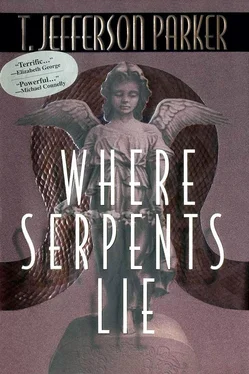


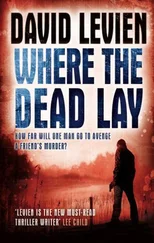
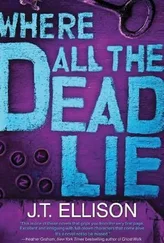

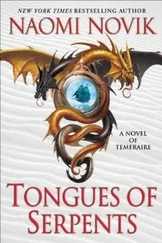

![Джеффри Дивер - Where the Evidence Lies [A Lincoln Rhyme Short Story]](/books/403782/dzheffri-diver-where-the-evidence-lies-a-lincoln-r-thumb.webp)


